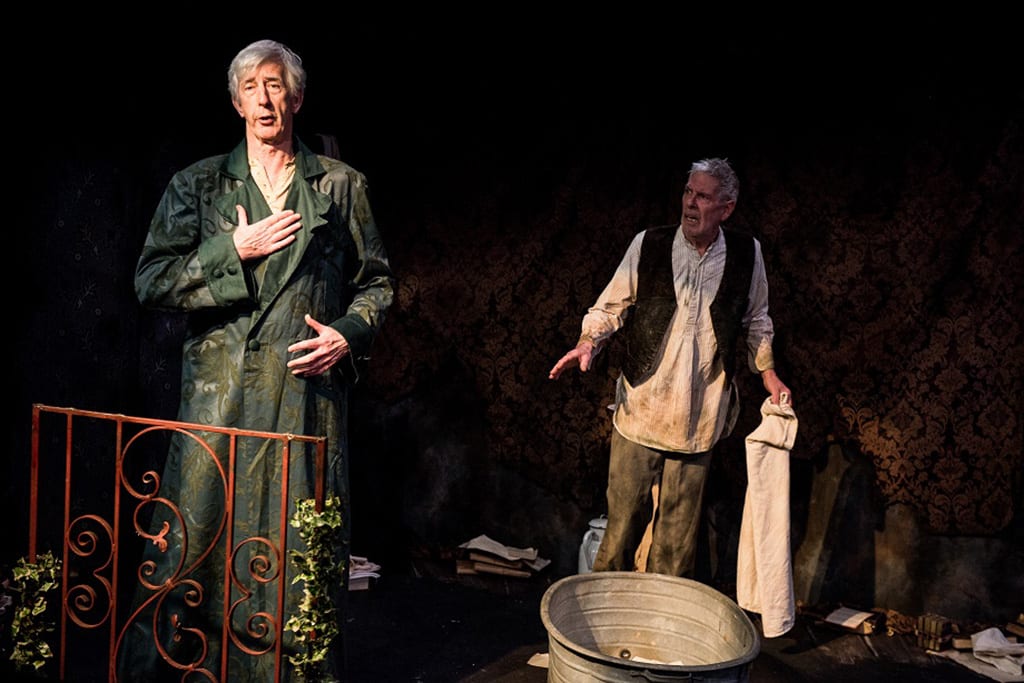In his 2001 play, Beau Brummel An Elegant Madness, Ron Hutchinson vividly portrays the final years of the famous dandy and arbiter elegantiae of Regency England. After an eventful life that saw him rising to the inner circle of the regent prince and future king George IV thanks to his wit and refined elegance, Brummel lost his fortune due to gambling and lost his social status due to inappropriate remarks to the regent prince, ending up exiled to Calais, France, living in extreme poverty and burdened by debt. In this adaptation he shares a shabby room in the company of his faithful servant Austin.
Hutchinson’s Brummel doesn’t have the moral ground of a fallen hero. Rather his delusional behaviour, such as simulating a suicide that will never happen or preparing to receive imaginary noblemen that will never turn up, makes him like a tragicomic Beckettian character. They make you laugh but at the same time pity them, because of the tragedy lying behind the comic façade.
Despite all, Brummell’s legendary dress sense is still very much alive. Even though he can’t afford more than worn old clothes, his daily dressing routine takes the form of a religious ceremony. It is an obsessive ritual that is perhaps his only reason left for living.
What remains very much alive is his penchant for making witty remarks about the world around him. Historically this is a period of great turmoil in post-revolutionary France, but this famed dandy examines everything only from an aesthetic point of view, sometimes a very cynical aesthetic point of view at that. He shallowly debates all the important topics of the time with his servant– social inequality, monarchic England, republican France, philosophical discussions on life and death. In Brummel’s world everything is a pose. And that’s just fine for Brummel as long as the pose is elegant. He respects a figure with a measured sense, especially if that person also has notoriety.
However, the focus of the play is the relationship between Brummel and Austin, reminiscent of famous pairs such as Don Giovanni and Leporello or Don Quixote and Sancho Panza. Here the master/servant relationship is brought to an extreme of morbidity and claustrophobia. On one side we have a narcissistic aristocrat who, despite total financial ruin, still hopes to have his former status reinstated. And on the other side we have a resentful servant who, despite his revolutionary ideas and plots to kill the king, mostly just aspires to be as witty as his master. But the two characters are unable to exist without each other. They need each other in order to justify their own existence. Both are unable to act and to put an end to the pain of their daily living. In the end they are stuck in a perpetual limbo of emotional co-dependency, longing for a better future.
The staging is minimal, with only a few objects necessary for the dandy’s personal grooming. Séan Brosnan interprets Brummel with the requisite haughtiness and elegance. Richard Latham gives an almost tormented portrayal of the raffish servant. Overall it is a compelling production that, thanks to brilliant actors and sapient direction, keeps the audience engaged and entertained at all times.

